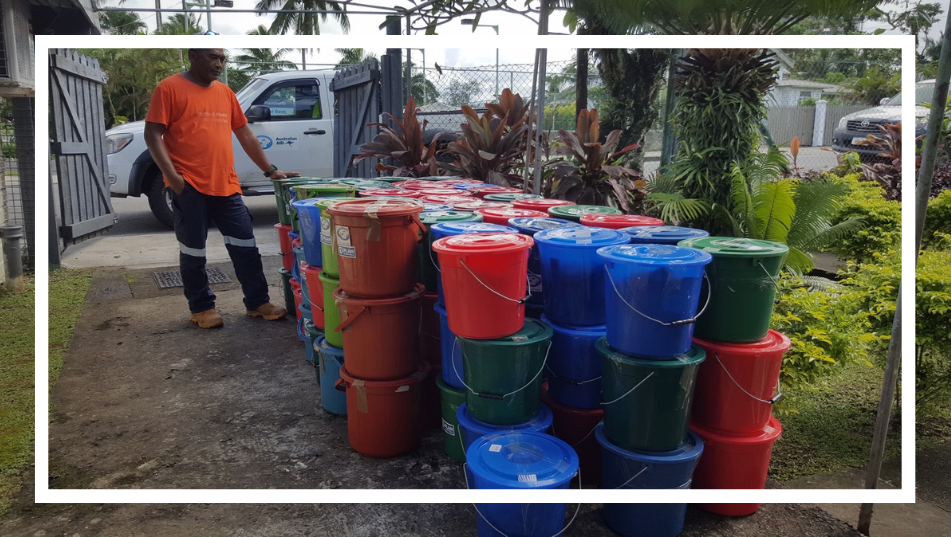The Category 5 cyclone has left more than two dozen people dead, according to media reports, while thousands of homes have been destroyed. Government buildings, schools, food crops, water supplies and phone and power lines have also been ripped apart by the week-long storm, alarming aid workers who say the cyclone has significantly hampered important COVID-19 relief efforts.
Around 90% of homes in Vanuatu’s second-biggest city of Luganville were affected while more than 160,000 people country-wide are now without shelter. Fiji and Tonga suffered severe flooding, landslides and power outages while in Fiji, 69 evacuation centres have now been opened, housing approximately 1,770 people.
With 16 confirmed COVID-19 cases, Fijian hospitals have now taken additional measures to further isolate patients from anticipated casualties of Tropical Cyclone Harold. In the Solomon Islands, where the cyclone first made landfall, reports are filtering in from rural Guadalcanal that water supplies, crops and homes have been severely damaged or completely destroyed.
“The Pacific is three to four weeks behind other countries like Australia with the impacts of COVID-19. Many countries are still coming to terms with the threat and don’t fully understand how significant the risk is,” said Plan International Australia Humanitarian Advisor Tukatara Tangi.
While the numbers of reported COVID-19 cases in the Pacific are relatively low, aid organisations and health workers fear the virus has the potential to decimate the region if it spreads. The widespread destruction of homes across Vanuatu, Fiji and the Solomon Islands – already countries at heightened risk of the pandemic due to under-resourced healthcare infrastructure plus a lack of access to strong communications networks and sanitation and hygiene facilities – have forced governments to relax critical social distancing measures as thousands seek shelter in emergency evacuation centres.
“The impact this crisis will have in lower-income countries with fragile health systems – like those in our own Pacific backyard – could be devastating. Worryingly, the WHO reported that at least half of the world’s 7.6 billion people could not access the essential healthcare they needed even before the COVID-19 pandemic,” Tangi added.
“Tropical Cyclone Harold is one of the worst storms to have hit the Pacific in five years, causing widespread destruction. The risk to lives and property – and COVID-19 relief efforts – is amplified. Many people once employed in the tourism sector are now jobless. Recovery could take more than a year. More assistance for the Pacific is urgently required,” he said.
Meanwhile, Plan International Solomon Islands’ Emergency Programs Coordinator Angella Anisi said the cyclone – which formed off the Solomon Islands and led to the deaths of 27 people who were swept off a ferry in wild seas – has come at one of the worst times for the country as it rapidly scales up its response to COVID-19.
“Whilst the Solomon Islands was not as hard hit by the cyclone as Vanuatu, it has had a huge and devastating impact on our response to the global pandemic. We are particularly concerned about the effect the coronavirus could have on our remote communities, and our WASH [water and sanitation hygiene] teams had been working around the clock to distribute sanitation kits, food supplies and important communication materials to them. Roads and bridges that had provided us access to these areas have now been destroyed by the cyclone, and we will now have to assess how we will reach them,”Anisi said.
“On top of this, we are hearing worrying reports that entire crop harvests have been flattened or washed away, leaving entire communities with scarce food supplies for the coming months,” she said.
A sluggish dissemination of COVID-19 information around the country had exacerbated anxieties in rural areas, she added, with many villagers fearful of people returning to their home provinces from Honiara, worried that they would bring the virus with them. “More people in the villages also means more pressure on food supplies and health facilities,” she added.












